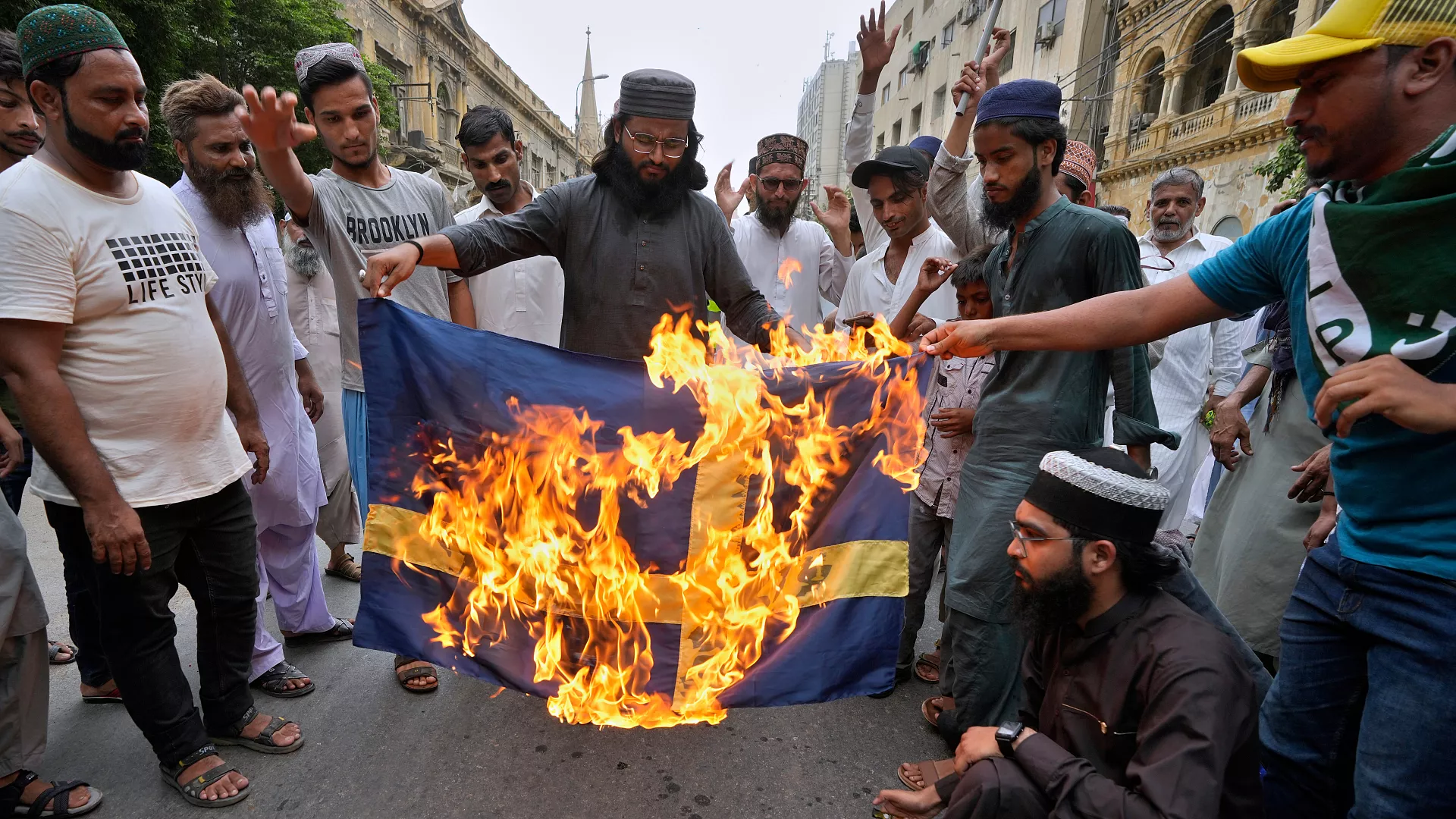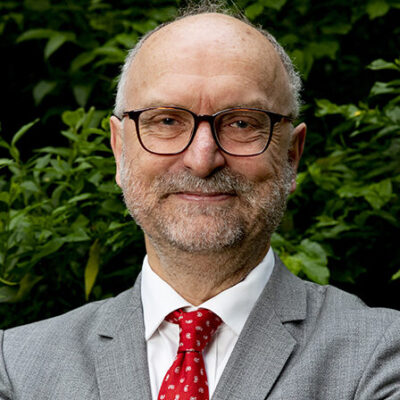
The murder of Quran burner Salwan Momika in Sweden in late January shows that jihadist theo-terrorists are pushing the envelope in enforcing their perspective. Even writing a novel can result in a life-threatening situation. In fact, that is how it all started in 1988, with the publication of The Satanic Verses by Salman Rushdie.
By Arthur Blok and Paul Cliteur
The Indian-British writer wrote a satirical novel about the early history of Islam. Subsequently, Ayatollah Khomeini (Iran) issued a fatwa (religious decree) a year after its publication, calling on Muslims worldwide to kill Rushdie.
Rushdie was forced to be very cautious for decades, and as recently as 2022, i.e., 33 years after the decree, an assassination attempt was made on him, which he fortunately survived. Recently, the trial of Hadi Matar, the man who seriously injured Rushdie after a knife attack, began.
That year, 1989, marked the end of the freedom of expression when writing a novel. Since that year, writers have known that you can choose any theme for a novel except Islam. And no writer does that anymore. This is never openly stated, but that is how it is. No writer in any country dares to choose themes similar to those of Rushdie's challenged book.
Theo van Gogh
In 2004, filmmaker Theo van Gogh made Submission with Ayaan Hirsi Ali in the Netherlands. The film denounced women's oppression in Islamic culture. Leading up to the film's release, Van Gogh regularly made the news with critical and provocative statements about Islam and migrants in the Netherlands.
Shortly after the film was released, Van Gogh was murdered by Mohammed Bouyeri, a Moroccan jihadist, a theo-terrorist jihadist, to be exact. Bouyeri went to prison in the Netherlands, where he is now serving a life sentence. This freed society from danger perpetrated by Bouyeri but not from the radical ideology he espoused.
Jihadist theo-terrorism as an ideology is flourishing in 2025, just as it was in 2004. And since 2004, everyone knows that it is better not to make a film about the oppression of women in Islamic culture. Not a single filmmaker dares to do that anymore.
It's too dangerous.
From the Netherlands to Denmark
A year later, in 2005, people in Denmark wanted to test freedom of expression about Islam. After the murder of Van Gogh, people were interested in this. Could one make cartoons about the Prophet Mohammed? The answer proved to be negative.
A cartoonist, Kurt Westergaard, making a Mohammed cartoon instead of a figure who looked like Mohammed with a bomb in his turban meant that Westergaard (1935-2021) had to live the rest of his life in a security regime.
Since that moment, all cartoonists have known that you cannot make Mohammed cartoons. And no cartoonist has done it anymore. Further, no editor-in-chief of any newspaper would print such a cartoon. The signal sent by jihadist theoterrorists is being flawlessly picked up by the world.
Stéphane Charbonnier died standing up
France was the exception that confirmed this rule. There, the cartoonists of the satirical periodical Charlie Hebdo continued to make cartoons mocking everything and everyone, including Islam and the Prophet.
The editor-in-chief of Charlie Hebdo, Stéphane Charbonnier (abbreviated as Charb), indicated that, like Van Gogh, he would rather die standing up than live on his knees. That dying came in 2015. Then, the (almost) entire editorial staff of Charlie Hebdo was massacred. That also meant the end of the Mohammed cartoons in France. Once again, jihadist theo-terrorism proved very successful.
Samuel Paty
Something related to this happened in 2020. A French teacher in his "education moral et civique" (a kind of civics or social studies) class showed one of the cartoons for which French cartoonists had died in Paris five years earlier. A pedagogically pragmatic way: a teacher shows in class which image had generated controversy.
But even that proved impossible. The teacher, Samuel Paty, had done something offensive with this. He had shown one of the cartoons drawn by Westergaard. Paty was beheaded. Since then, all French teachers know that showing a Mohammed cartoon during class can get you a beheading. Even if that showing of that cartoon was meant as a teaching moment.
Appeasement
In the confrontation between the demands of the worldview of jihadist theoterrorists and the values of the free democratic rule of law, you see that the jihadists turn out to hold the most potent cards every time. Whether one wants to acknowledge it or not, jihadists emerge victorious every time.
The democratic legal order reacts apathetically. People prefer not to talk about the problem. Politicians and law enforcers look the other way, or people engage in appeasement: pandering to jihadists on seemingly minor issues. So, no more novels à la Rushdie, no more Muhammad cartoons, no paying attention to them in class, and certainly no Quran burning—not even if that is permitted by law in the country in question and protected under the principle of freedom of expression.
Perhaps that is why it is so shocking. In the Western world, we have adapted ourselves to the new circumstances. Do jihadist theo-terrorists object to a satirical history of Islam? Let’s not write books about that anymore. Objections to provocative cartoons? Let’s abolish them. Objections to showing those cartoons in civics classes? Then let’s stop with that as well.
So what is left of our artistic freedom?






